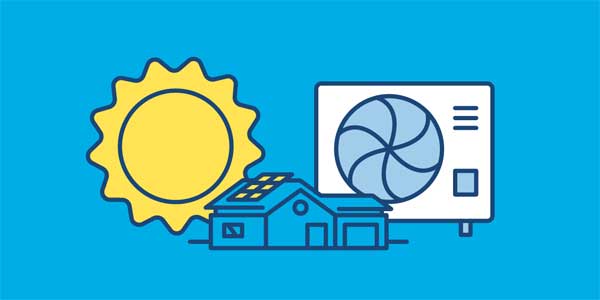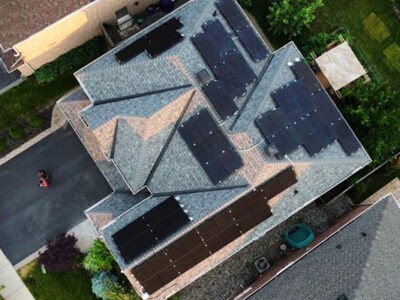With winter well behind us, summer is now here to grace us with long, sunny days. That means BBQs, lemonade stands, more solar savings, but also higher air conditioner usage. When you’re leaning more on your air conditioning during the hotter months, you’re also leaning on your solar system’s energy output.
Ensuring that your air conditioner is efficient will help you recoup those energy costs and maximize your prime summertime solar savings. Put your air conditioner to work finding you more ways to save this summer by evaluating its Seasonal Energy Efficiency Ratio (SEER) Rating.
What’s a SEER Rating?
Any given cooling unit’s SEER rating is calculated as its cooling output during a typical cool-season divided by the total electric energy input during the same period. Put simply, that means that the higher the unit’s SEER rating, the more efficient it is.
In the United States today, most systems rate above a SEER 9 rating because the government has worked to replace older, existing units with higher efficiency units. ENERGY STAR certified units, excluding window units, must have at least a SEER 14.5 rating. Despite this, many homes may still contain old units or have an overall rating of SEER 9.
That’s why it’s important to check your A/C’s rating, because you could be losing out on savings with an inefficient unit. For example, converting from SEER 9 to SEER 14 or higher can net you roughly $415 a year, depending on your usage.*
Do Your Research First
We know you enjoy savings — but don’t rush to your appliance store just yet! SEER compliance ratings vary from state to state. With so many individual needs, there’s no blanket solution so it’s important to do research on what unit works best for your home and usage.
Luckily, the US government has put together a thorough set of guides and calculators to help you crunch the numbers. With these great resources, you can draft an informed roadmap for your upgrade.
Maximize Your Summer Solar Savings
It is important to stay vigilant about your appliances and energy use when it comes to efficiency and saving. Having an inefficient unit is just as bad as leaving all your appliances on all day. By understanding the SEER rating, you can make smart choices for your solar energy usage and your home.










Comments